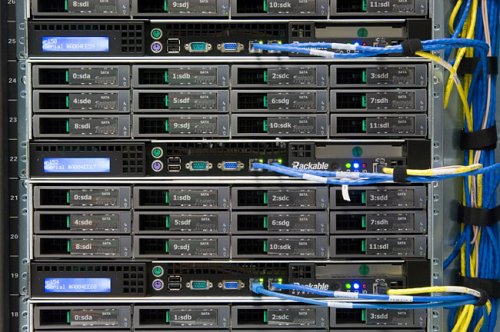Why Do Small Businesses Need Data Centers?
Small businesses who properly leverage third-party data centers gain a technological edge over competitors with in-house data centers. However, small businesses should evaluate data center pricing differently than large companies. Budget constraints affect data center decisions for small businesses more than large businesses. This is largely due to the fact that they must place a greater emphasis on the overall value received. Smaller budgets require a substantial return on investment to justify data center as a long-term strategy.

Look at the Overall Value of the Data center Service
The first step to determining value of data center is to evaluate return on investment. This is done by comparing the overall value received against the data center pricing. There are two different types of value that must be considered. The first is the intangible benefits of storing servers off-site in a premium data center. Data center pricing provides small businesses with an opportunity to benefit from a well-developed network, built-in redundancies and multiple layers of physical and digital security. It also offers qualified personnel who assist with hardware and software setup and maintenance. A company can’t easily duplicate these services with in-house IT programs; the set-up and maintenance expenses can be cost prohibitive.
Consider the Potential Cost Savings Data center Offers
Small businesses gain tangible benefits from data center, as well. Many lead to significant cost savings. These cost savings can be directly compared to data center pricing packages to determine net financial benefit. A majority of the savings are related to the overhead and day-to-day costs of keeping a server in-house. This is achieved in two ways.
The first is by taking advantage of the economies of scale that large data center data centers provide. Data centers are able to minimize costs by spreading them out among their many customers. This leads to savings on multiple features including service space, energy consumption and bandwidth. The second is paying for services only when they are needed. With in-house servers, businesses have to hire a trained technician or staff for maintenance, upgrades and emergencies. Data center allows these businesses to instead access qualified technicians only when needed. The rate of these services is established in the data center pricing agreement.
Effective Data center Pricing Allows for a Long-Term Solution
The final variable small businesses must consider when evaluating data center pricing is long-term need. A main goal of most businesses is to grow clientele and revenue. With growth comes a bigger need for IT infrastructure. At some point, a small business will need to expand its number of servers as its needs grow. This means more servers, space, power and bandwidth. With an in-house infrastructure, this expansion is often cost prohibitive. Data center services have the ability to expand with small businesses. Additional infrastructure can be provided with little or no increase in the data center pricing agreement.
Small businesses operate in a unique situation. They need the infrastructure of a large company without the overhead and resources of an in-house solution. This requires them to evaluate data center pricing through a different lens. Focusing on both the tangible and intangible benefits compared to the expense of data center pricing agreements is essential.
Jon Williams believes there are many factors to consider when evaluating data center and colocation services. His articles educate his readers about the features that set different data centers apart. Since small businesses operate in a unique situation, this requires them to evaluate colocation pricing through a different lens.
More to Read:
Previous Posts:






